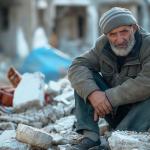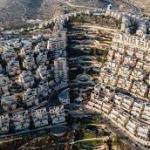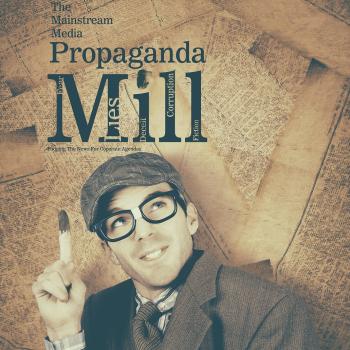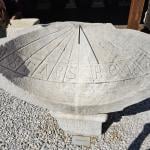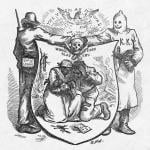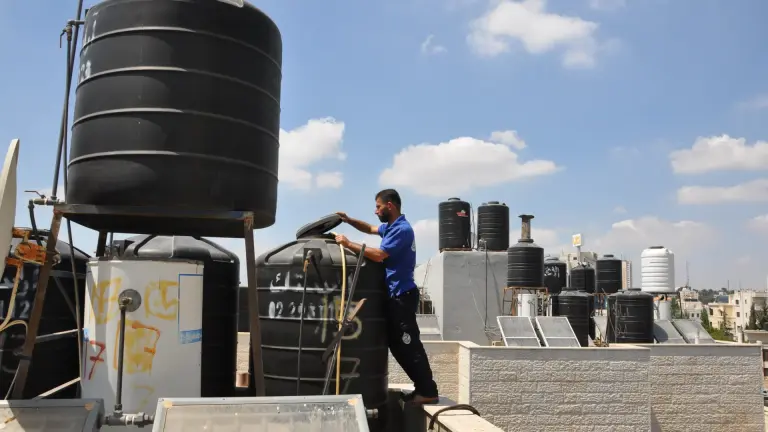
Two weeks ago, I posted another blog about Christianity Today’s podcast series, “The Promised Land.” To say I was disappointed with the six episodes would be an understatement of monumental proportions.
As I noted in my response to the podcast’s first three episodes, I had high hopes for the series. Unfortunately, these hopes were not only unmet; the series does more harm to the prospects of peace than it does good—and this, too, might be an understatement.
NB: perhaps I was naïve to think this podcast series would be balanced. After all, the name “The Promised Land” surely betrays CT’s conviction that the land belongs to Israel.
The Church is supposed to be in the business of peace-making (Matt 5:9). And fundamental to the Christian witness is the human dignity of all persons.
Yet, throughout the six episodes in this podcast series, CT has sadly reinforced the dominant Western narrative: Israelis are the poor, oppressed people living in the midst of radical Islamic terrorists, and the Palestinians are either the radical Islamic terrorists or they support them.
This overly simplistic and highly distorted understanding of the conflict not only perpetuates violence but serves to reinforce the necessity of violence. It wrongly portrays one people as innocent victims in need of self-defense and the other as violent extremists.
When we do this, we justify war and violence. Can we not see that this is the very antithesis of what we have been called to do? Why can’t we look at all people as Image Bearers?
Sure, there is plenty of evil to go around. But if we believe that war will solve the world’s ills, we are sadly mistaken, and we betray the heart of the Gospel.
NB: I refuse to put these posts behind a paywall, as this hinders the poor from accessing the information. But I can only continue these posts with the support of those of you who can afford to give. So, if you can afford to give $5, $10, $25, or $1 million/month, please do so. You can give a tax-deductible contribution by following this link.
Settlements
As I have noted in countless posts and livestreams, one of the most significant obstacles to peace in this conflict is the Israeli settlement project. These settlements continue to expand throughout the West Bank.
Yet, as I mentioned in a previous post, Mike Cosper and the CT podcast series “The Promised Land” present the settlements as a necessary means of Israeli defense.
To be clear, the Fourth Geneva Convention (1949), to which Israel was a signatory, prohibits an occupying power from moving its own population into the land that it occupies. Yet, three months after the six-day war ended in 1967, the Israeli settlement project began.
It must be noted that in order to build these settlements, Palestinian lands must be confiscated, and those living on or farming these lands must be uprooted. For some of the Palestinians, these lands have been in the family for centuries. They were entrusted with these lands by their fathers, who were entrusted by their fathers, and so on.
In addition to the injustice of a foreign power confiscating Palestinian ancestral land, the settlements are the prime inhibitor to peace. After all, these lands cannot simply be given back. Israel has built sprawling cities and moved its people into these lands.
There is little doubt that Israel has continued this enterprise with the full knowledge that the settlements are the primary obstruction to a lasting peace. After all, for there to be a Palestinian state, there must be land that they rule. Having 750,000 Israeli settlers living in this land (a number that grows almost daily) works counter to any hopes for an independent Palestinian state.
In other words, the all-too-often used cliché that if the Palestinians laid down their weapons, there would be peace, but if Israel put down its weapons, they would be destroyed, must be challenged. The facts betray the conception that Israel wants peace.
If Israel wants peace, why have they continued to expand the settlement project? There can be only one conclusion here: Israel (and by this, I mean those in power in Israel) has no interest in peace until they have acquired all of the land with little to none of the Palestinian people.
How to identify a Palestinian village from an Israeli settlement
In the second half of episode 5 of “The Promised Land” podcast, Cosper states, “It is easy to distinguish between an Arab village and a settlement.” Incredulously, he declares that the Arab villages have flat roofs, and the Israeli settlements have slanted roofs with red tiles. Of course, what Cosper misses is that there is another way to distinguish between a Palestinian village and a settlement, one that recognizes some of the injustices that Palestinians face daily.
Palestinian villages are marked by large black water tanks on their roofs, a stark contrast to Israeli settlements, which do not need them. This difference is a glaring indicator of the daily injustices Palestinians face, as these tanks are necessary to store water due to the Israeli government’s control over water distribution. Yet, Cosper fails to acknowledge this crucial fact and the deeper injustices it represents.
Although the West Bank has ample aquifers for its inhabitants, Israel has complete control over the water and its distribution—and let’s say it is not distributed equally.
For the Israeli settlers, water is not an issue. The settlements have community pools and parks with fountains; each resident has more than enough water. For the settlers, as with most Americans, water is something they simply turn on the tap for when they want it.
For the Palestinians in the West Bank, water is something that the Israeli government controls, and they dispense for Palestinian villages irregularly.
NB: we would do well to recall that Israel’s control of the water to the Palestinians is evident in that they completely turned off the water in Gaza once the war began.
As a result, the Palestinians need to have large water tanks on their roofs so that they may store water, as they do not know when the Israeli occupiers will turn the water on. It is not uncommon for Palestinians to go extended periods without water.
This may not seem like much for most readers of this post. But that is because we have not endured extended periods without being able to cook or clean, nor have we had to shower with bottled water. We don’t know what it is like to serve a meal to a guest on a paper plate because we cannot wash our dishes.
Amnesty International notes that in some villages, Palestinians receive as little as 20 liters of water per day, while settlers consume 300 liters.
CT’s Portraying of Settlers as the Good Guys
Let me be clear. All people, Israelis and Palestinians, are made in God’s image. All are worthy of life, peace, and justice. To damn all Palestinians because of Hamas or all Israelis because of extremist elements among the settlers, or those in the Israeli government, will not bring lasting peace to anyone.
Sadly, Cosper and the CT podcast series consistently depict Israel as acting merely in self-defense and the Palestinians as antisemitic terrorists. As I noted in my recent post, the narrative that Cosper tells is that the settlements are needed for Israel’s security. But, we must ask, if the settlements reside on stolen Palestinian land and if the settlers enjoy the water and many other amenities that their Palestinians are deprived of, how can this ensure Israel’s security? Does this not undermine Israel’s security?
In the second half of episode 5, Cosper visits a settler. As you might imagine, the settler and his family are good people surrounded by Hamas—though it doesn’t seem to occur to Cosper that Hamas rules in Gaza and not the West Bank.
Because of the likableness of this settler and his family, they could hardly be the problem.
To be continued . . .
Please share this post and let others know about determinetruth.
If you wish to view this blog on your smartphone through the Determinetruth app, download the “tithe.ly church” app and insert “determinetruth” as the name of the church you wish to follow. Once it is loaded, click on the “blog” icon, and it will automatically load.



